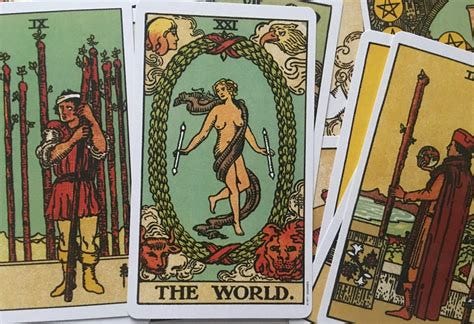TOWARDS AN ANARCHIST METAPHYSICS (THE INSANE STUPIDITY OF ANTI-ESSENTIALISM VOL. 4)
In which Paul Cudenec explains why no political philosophy is complete without metaphysics
Hey Nevermorons,
As you probably know, lately I have been hard at work on what I call the Search for the World-Story.
In a piece called The Story is Broken, I explain that I feel that anarchists really need to think deeply about the narrative that we want to put out there into the world.
THE STORY IS BROKEN.
Big News, everyone! I had a vision. Sort of. I think. NEVERMORE MEDIA is a reader-supported publication. To receive new posts and support my work, consider becoming a free or paid subscriber. Maybe it will sound profound. Maybe it won’t. But I feel like I have a better idea of what exactly my mission in life is now.
Basically, I believe that people live and die by stories, and that if we wish to transform the world, we must begin by telling better stories.
Along the way, I started talking about what I call the World-Story and arguing that anarchists need to come up with our own Mythos, offering compelling answers to the following Three Questions:
What are we?
Where do we come from?
Where are we going?
Each question is interesting, and each can be answered in a multitude of ways. The question of What are we? could be answered in psychological terms, or in anthropological or sociological or physical ones.
Indeed, to answer the first question one must ask oneself whether is an individuated, atomized unit of consciousness, or whether one is inseparably part of something greater than oneself.
To answer the question one must also ask oneself - Who am I? What am I?
This is the first question of philosophy, and personally I feel that the Buddhists have the most rational answer.
According to Buddhists, reality is an illusion, and our very identities are provisional, fictional stories that we tell ourselves about ourselves in order to help us navigate the world. When we take our own projections too seriously, suffering results.
It’s a trip, but it checks out. If you need some help wrapping your mind the idea, I would recommend Shinzen Young’s excellent book The Science of Enlightenment.
I would also recommend the Nexus Void YouTube channel, which should convince you that you are basically a figment of your own imagination.
Spirituality often involves taking a leap of faith, and believing in things that cannot be proven to be true, but this is one area where I feel like Buddhism and the scientific method are perfectly aligned. There really is no doubt that Buddhism is the most scientific religion.
If something can be assumed to be true if it is impossible to disprove, then the Buddhist metaphysical perspective has been proven correct.
What’s my point? Well, I suppose that my point is that human beings have been asking ourselves the Three Questions as long as we’ve been humans. We really don’t have to reinvent the wheel.
The truth is that metaphysics isn’t that complicated a subject, for the simple reason that not that much is known about it. Basically, some things are unknowable, because there are limits to what the human mind can grasp.
In the Lakota tradition, God is referred to the Great Mystery, and I fell that the most intellectually honest thing a person can do is to admit that we don’t have the slightest clue why the universe exists at all, or how it began (if it did begin), or how something could exist without having brought into being by someone or something else somehow. How could something emerge from nothing?
Since the beginning of time up until today, no human being has ever adequately answered this question, and I suspect that it is simply beyond human conceiving.
As Terence McKenna was fond of saying, the universe may not merely be stranger than we suppose, but stranger than we CAN suppose.
If we are honest with ourselves, we can separate philosophical questions into unanswerable and answerable ones.
So far as it comes to the answerable ones, well, different cultures will come up with different answers because belief is ultimately a matter of adaptation to one’s environment. It is very interesting to look at how different cultures have presented their answers to the three questions through their respective mythologies.
So far as the unanswerable questions are concerned, this is where Mythos must pick up the slack.
Although we might not ultimately have the slightest clue as to why we were born or what we’re meant to do in the world, in practice we need to navigate the world, and in doing so we develop beliefs about what is and isn’t desirable, what is and isn’t acceptable, and so on.
This question is complicated by the fact that children expect adults to have the world figured out, to some extent, and therefore parents end up passing along their version of the World-Story of their culture.
What I have realized that I fundamentally disagree with the World-Story of the culture that I was raised into, and this has led to me to a rejection of postmodernism, moral relativism, secular materialism, rationalism, and anti-essentialism.
Anyway, what you are about to read is a 2018 essay by Paul Cudenec called TOWARDS AN ANARCHIST METAPHYSICS, in which he argues that no philosophical system could possibly be complete without an understanding of metaphysics.
Really, there is so little to know on the subject of metaphysics that there really is no excuse for any intellectual to be ignorant of it!
If you’ve never studied metaphysics, you can pretty much bring yourself up to speed in a couple of weeks. Get a copy of Descartes’s Meditations, head out to the woods by yourself, and really just take the time to think. Bring along some acid or mushrooms if that’s your cup of tea.
Really, chances are that you will come to the same conclusion that Descartes did. You will conclude that you definitely exist, because if you didn’t exist you wouldn’t be asking yourself if you existed or not. Pretty straightforward.
The question then becomes “What is this thing that I call “I”? Am I my body? My mind? My soul? Could it be that I do not exist, but something is causing me to feel as if I do?”
Now, that might seem kind of unlikely, but perhaps one is something akin to a puppet, and that the actual animating force is another being.
The question of Who am I? or What am I? then becomes a question of Where do I end and where does the world begin?
So now you have two ideas - self and other. But really, are the two separate at all? After all, both are simply concepts in your mind. Your concept of the world is imaginary, and so is your concept of yourself. Is there a meaningful difference between the two? Are both equally imaginary?
By the time that you have gotten to this point, you will have reached the conclusion that SOMETHING exists. It is entirely possible that you could be mistaken about what the nature of that thing is, but one can be utterly certain that SOMETHING exists.
This is the first absolute truth of metaphysics - that SOMETHING EXISTS. It might not sound like much, but it’s something.
The question then becomes how to conceive of one’s relation to that thing, and there are many different possible directions to go from there. Personally, I feel like the SOMETHING which exists is either God or the Universe.
The word God is obviously one that a lot of people have trouble with, so some of you will have an easier side conceiving of this SOMETHING in more impersonal terms. Perhaps you will prefer the term COSMOS or MOTHER NATURE or something else. But in order to base one’s philosophy in absolute truth, one must have a concept of THE ULTIMATE THING. Alan Watts refers to this as “The Ultimate Ground of Being”.
For simplicity’s sake, I’ll call it the World.
Postmodernism, which begins (let’s be honest) with a rejection of the whole notion that there is such a thing as truth, is incapable of serving as a basis for a revolutionary political movement, because it is incapable of basing itself in Absolute Truth, because it doesn’t base itself in the only truth that we can truly know, which is that we exist, and are in some way defined by our relationship with God, the Supreme Being, the Cosmos, the Universe, or however else we choose to conceive of THE ULTIMATE THING, which I am calling THE WORLD.
Whether you believe in God or not, all this is logically true. Indeed, if anything can be said to be true at all, it is this.
At this point, Buddhism and Hinduism diverge. Whereas Buddhists hold that identification with the ego causes suffering, Hindus are taught to identify with THE ULTIMATE THING, conceived of as the SUPREME BEING (also known as GOD), and that one’s true nature is ultimately divinity. But that’s a topic for another day.
Anyway, my main point here is that there really is no reason to be scared of metaphysics. Studying metaphysics won’t make you more superstitious. If anything, it will make you more skeptical. There is nothing irrational about metaphysics. It is based on the simple acknowledgement of one’s place in the universe.
Anyway, I think that it is important to point out that the word metaphysical need not be seen as a synonym for spiritual. Spirituality generally includes the wilful use of consciousness through the magic of belief, and is therefore inherently subjective, whereas the word metaphysical lends itself well to cases in which one wishes to be objective.
I am presenting this essay as a continuation of a series called THE INSANE STUPIDITY OF ANTI-ESSENTIALISM.
You can find the first three instalments here:
Is Snow Black?
"Education should aim at destroying free will so that after pupils are thus schooled they will be incapable throughout the rest of their lives of thinking or acting otherwise than as their school masters would have wished ... The social psychologist of the future will have a number of classes of school children on whom they will try different methods of…
Denying reality: a dangerous delusion
Denying reality: a dangerous delusion by Paul Cudenec (Note - This essay was first published in Paul’s excellent 2017 book Nature, Essence and Anarchy, published by Winter Oak Press. We are it republishing it now as part of our ongoing efforts to clarify our analysis in an age of political disorientation. Enjoy!
Is Fire Hot?
(The following is the third instalment in a series of articles relating to the relationship between anarchism and postmodernism. Check out Part 1 - Is Snow Black? and Part 2 - Denying Objective Reality: a dangerous delusion.) In my writing, I have often tried to challenge the underlying dogma of contemporary industrial civilization...
And with that out of the way, I present:
TOWARDS AN ANARCHIST METAPHYSICS
by Paul Cudenec
I suspect there will be someone out there who has taken a glance at the title of this article and has not even reached as far as this opening paragraph, convinced that the phrase is meaningless and that there can never be any such thing as an anarchist metaphysics.
This may be because they are attached to a very practical (and limited) vision of anarchism as nothing more than the programme of a specific political movement, created out of thin air in the 19th century.
It may be also because they see “metaphysics” through the filter of a secondary use of the word, as laid out by the dictionary in front of me, in which it is applied “loosely and vaguely” to anything abtuse, abstract, transcendental, occult, supernatural or magical.
But the primary dictionary definition of metaphysics is “the branch of philosophy which investigates the first principles of nature and thought”.
This is obviously not something that could be incompatible with any political philosophy. Indeed, I would say it is indispensable! Without understanding, through metaphysics, the first principles of nature and thought, how could we go on to develop the secondary principles of a political philosophy?
I will be arguing here that metaphysics has to be the foundation stone of any coherent anarchist world-view. An anarchism which lacks that foundation also lacks all philosophical solidity and (as is tragically the case today) risks being swept back and forth by the shifting tides of fashionable (non-anarchist) opinion.
I will be showing how three particular metaphysical realisations (“first principles”) are clearly and directly related to the anarchist political world-view.
1. Universalism
I have already explored the metaphysical realm in my writing, notably in Forms of Freedom and in the final chapter of Nature, Essence and Anarchy, entitled Necessary Subjectivity, which is now available online as a pdf.
In that chapter I explain that the starting point of my philosophical quest is the idea of an all-inclusive Universe, a definition of reality cast so wide that nothing can exist outside of it.
This is, in fact, the traditional starting point of metaphyics (adopted by everyone from Plotinus to the German nature-philosophers), although it stands in direct opposition to the individualistic modern perspective built on Descartes’ egocentric “I think therefore I am”.
The political importance of this metaphysical insight should immediately be obvious. It is the basis of universalism, a crucial pillar not just of anarchism but of left-wing thought as a whole.
Scaled down to the human level, it inspires a vision of humankind as an all-embracing entity, which is the starting point of individual and communal identities. First there is something called the human species. This species then produces individuals and groups of individuals through which it can phsyically exist at any given time.
Humankind is not just a label given to a collection of individuals or particular cultures but is the essential reality behind all those disparate parts.
Recognition of the essential universal humanity of all people is therefore a bedrock of anarchist and left-wing thought. Philosophies which deny universalism or the existence of humankind (either, like the Nazis, by declaring some people to be less than human or, like some post-modernists, by declaring humankind to be a “construct” that risks oppressing individuals or groups) do not share this indispensable metaphysical basis. These ideologies are therefore incompatible with anarchism.
2. Empowerment and Equality
The univeralism described above, in which individual or group particularities are secondary to an overarching unity, does not imply any restriction on individual human freedom. In fact it raises individuals to an even greater status because it sees them as nothing less than particular manifestations of the universal whole.
Each of us, as an individual, is nothing less than the Universe itself, in a restricted temporary form, in the same way that a particular ray of sunshine is nothing less than the sun itself.
This metaphysical position is very different from the religious view of “God” as an entity outside of the universe, who created the universe and rules over it. Organised religions use this idea of a separate supreme being to disempower human beings. We are all wretched “sinners” dependent on their organisation for “salvation”. Their “God” wants us to obey the people he has supposedly appointed to carry out “His” will on earth, to hand over our cash and our freedom to their safe-keeping.
Individuals who regard themself as a living part of the Universe, as the Universe itself in individual form, do not go along with the idea that they should “know their place” and obey self-appointed authority. They know that the people who dress up in wigs, suits, robes or uniforms are no better than they are and have no “god-given” right to rule over them.
Universalism implies equality. Not the equality of sameness, but the equality of shared humanity, shared belonging to the Universe. This is the metaphysical basis of anarchism.
The loss of this metaphysical understanding is a big step backwards for human societies. Not only do individuals lose the anarchic sense of empowerment which resists the demands of authority, but they also fall back into a stunted and egotistical view of their role in the world.
An individual who thinks they are entirely separate from everything and everyone else, who imagines that they they have somehow appeared independently on earth as a little node of autonomous consciousness, has no affinity with others.
The all-important subject (me! the centre of my universe! the one who thinks and therefore is!) finds themself in a lifelong struggle against the external objects which frustrate their will. These “objects” include other human beings.
For a metaphysically-separated individual, there are no wider levels of belonging than the purely personal. The purpose of life is self-advancement and personal pleasure. There is no such thing as community, or society. “Humankind” is a construct. “Nature” is a meaningless concept. “Universality” is a lie. All that matters is the Ego. Looking after Number One.
3. Responsibility and Action
One metaphysical question that I address in Necessary Subjectivity is that of time. I come to the conclusion that from the hypothetical point of view of the Universe, which includes everything, time is just another dimension contained within it. It is only from our perspective, as we play our real and solid physical role, that time appears to “pass”.
This kind of speculation might appear to have nothing to do with anarchism or any kind of political thinking. But it does!
It is all a matter of responsiblity. Responsibility, for me, is the other side of the coin of freedom. If we demand the freedom to act as we see fit (which, as anarchists, we very much do!), then it is because we wish to act in a way which we think is right. If we have the metaphysical insight that takes us beyond narrow egotistical aims, we will want to act on behalf of wider interests. We want to be free to act in the interests of our fellow human beings, of our community, of our species, of all species, of nature, of the planet. That it what authentic political engagement is all about. It is never about mere personal self-interest.
We only have the possibility of influencing the world about us because we physically exist. The Universe, massive and all-embracing though it is, only has the power to influence physical reality through its physical constituents.
Our freedom, as parts of the Universe, is also our responsibility to act on behalf of the Universe. We have a metaphysical responsibility to realise and understand our belonging to the Universe, to transcend narrow egotism, and then a practical responsibility to act in the real world in which we operate.
I wrote in Necessary Subjectivity: “We are human beings, existing on a physical and temporal plane of reality. We experience the present from the point of view of the present, the stage of the time-process at which it is being shaped. Our presence-in-the-present empowers us to participate in the process at the only point at which that is possible.”
Seen from the (for us impossible) perspective of The Universe, which is beyond all time because it includes it, all the events which take place along the dimension of time would appear to already be in place, to be inevitable or predetermined.
But that is not the case for us, because time is a dimension within which we act. Moreover, it describes the process through which our actions shape reality.
This is pure anarchism, expressed in metaphysical terms. First we have the combination of a collective awareness with a sense of individual freedom, a symbiosis in which the freedom of the individual is seen as the means by which the interests of larger collective entities can be pursued.
Then we have the compelling urgency to act, a realisation of the historical importance of acting, an existential sense of presence and possibility that pushes the individual anarchist beyond passivity, beyond the status of observer or spectator, into an engagement with time, with history, which he or she knows is the necessary fulfilment of their existence.
Because we are living parts of The Universe, because our deepest innermost essence is that of The Universe, our truest purpose in life can never be to act merely in the narrow interests of the individuality which gives us physical form and presence.
That individual presence, this life, is a gift to be treasured. But it is not a gift to be squandered in egotistical self-indulgence. To be fully human, to stretch towards the glorious possibilities of human attainment, is to seek out the metaphysical truth of our belonging to the universe and to open ourselves up to the energy and purpose of that belonging, to allow our physical presence to act as a channel for that belonging.
To become truly ourselves is to go beyond our selves, to allow a universal light to shine through our minds, our hearts, our words, our actions. The highest purpose of any human life is to do what is right. Anarchism is about doing what is right. Insisting on what is right. It is about sourcing an understanding of what is right from deep within us (and thus from the collective whole) and putting ourselves at the disposal of that rightness.
Anarchist metaphysics is the pre-condition to anarchist action, which is probably why it has been sidelined by the contemporary capitalist culture that has infected anarchism.
As I wrote in Forms of Freedom: “It is not by chance that our culture lays down so many false trails to be followed by those seeking to know and embrace the reality of their own supra-individual existence: the suppression of that knowledge is essential to the continuation of that culture, that system.
“People who understand that they are not merely individuals, but also are the collectivities to which they belong, are not going to allow this living freedom to be denied by the dead hand of ‘property’, ‘law’ or ‘nation’.
“People who understand that their individual freedom is also the freedom of the collectivity will not feel any need to conform to that collectivity’s existing point of view, since they know that their dissent is entirely part of the organic collective decision-making process.”








Thanks Crow. Yes, your Three Questions - "What are we? Where do we come from? Where are we going?" - are a necessary basis for reappraising the story of humankind.
My article dates from 2018 rather than 2012, in fact, not that this is of any relevance, since metaphysical truth is eternal and certainly doesn't change in the course of six years...